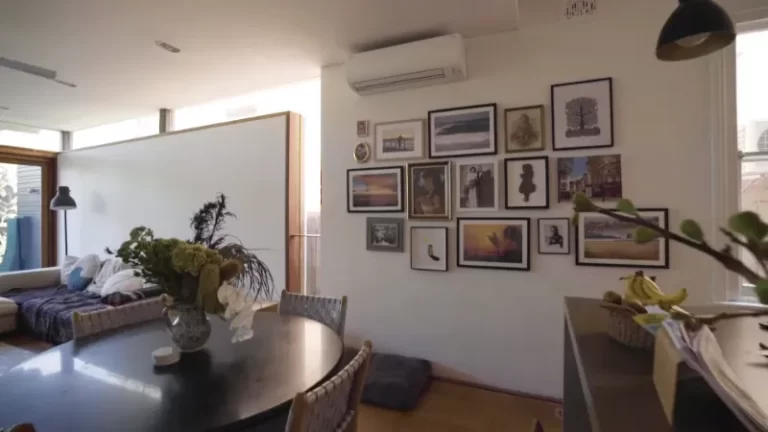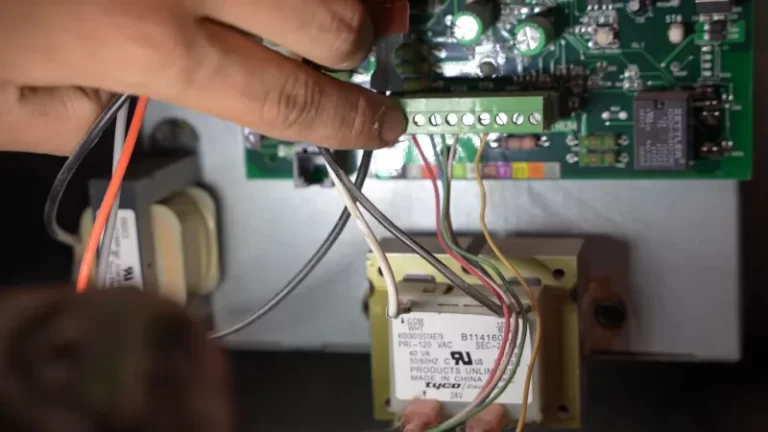Camper Refrigerator Problems and Solutions
Having a functioning camper refrigerator is crucial for any RV or camping trip. Not only does it keep your food and drinks fresh, but it also helps prevent spoilage and waste. However, like any other appliances, camper refrigerators can encounter problems that can disrupt your trip.
In this article, we will discuss the most common problems with camper refrigerators, including why they occur and how you can fix them yourself. From issues with the cooling unit to electrical problems, we will provide tips and tricks for troubleshooting and fixing these problems quickly and efficiently.
Whether you are a seasoned RV owner or a new camper, this article will help you ensure that your camper refrigerator stays in top shape for all your adventures.
Problem 1: Won’t Turn on
Causes of This Issue
There are several reasons why a camper refrigerator may not turn on, including:
- Power source: Your camper refrigerator may not be receiving power due to a blown fuse, a tripped circuit breaker, or a disconnected power cord.
- Thermostat: The thermostat may not be working properly, which can prevent the fridge from turning on.
- Electrical problems: If there are any electrical problems in the wiring, this can cause the fridge to not turn on.
- Propane supply: If your camper refrigerator runs on propane, you may have run out of propane or there could be a problem with the propane supply line.
Troubleshooting Tips to Fix the Problem
Check the Power Source
If the fridge isn’t turning on, check the power source to make sure it is connected and receiving power. Replace any blown fuses or reset the circuit breaker if needed.
Check the Thermostat
If the power source is fine, then check the thermostat to see if it is working properly. You can test it by turning it on and off and checking to see if the fridge starts to cool.
Check the Wiring
If the power source and thermostat are fine, then inspect the wiring for any signs of damage or loose connections. If you find any, repair or replace the damaged wiring.
Check the Propane Supply
If the fridge runs on propane, make sure that you have enough propane in the tank and that the propane supply line is connected properly. If the propane supply line is clogged, clean it out.
By following these troubleshooting tips, you should be able to fix the problem of your camper refrigerator not turning on. If you are unsure about any of the steps or need further assistance, it is always recommended to consult a professional for help.
Problem 2: Leaking Cooling Unit
Reasons for the Leakage
Leaking in the cooling unit of a camper refrigerator is a common problem that can be caused by a variety of factors. Some of the most common reasons for a leaking cooling unit include a damaged or faulty evaporator, an improperly installed gasket, or a refrigerant leak.
One of the primary causes of leakage in the cooling unit is a damaged or faulty evaporator. This can happen when the evaporator is damaged due to rough handling during transport or installation, or if it has become corroded over time. An improperly installed gasket can also lead to leakage, as it may not be providing a tight seal between the cooling unit and the fridge interior.
Finally, a refrigerant leak can cause the cooling unit to leak, and is usually due to a hole or crack in the refrigerant lines. This can be caused by a variety of factors, such as a manufacturing defect, improper installation, or damage during transport.
Solutions for Repairing the Leak
If you’re experiencing a leak in your camper refrigerator’s cooling unit, there are a few steps you can take to repair the issue. If the leak is due to a damaged or faulty evaporator, it will need to be replaced. This is a job that should be left to a professional, as it requires specialized equipment and knowledge.
If the leak is due to an improperly installed gasket, you may be able to fix the issue by removing the gasket and re-installing it correctly. This can often be done with just a few basic tools, but you should consult the owner’s manual or a professional if you’re unsure how to proceed.
Finally, if the leak is due to a refrigerant leak, the refrigerant lines will need to be repaired or replaced. This is another job that should be left to a professional,
Problem 3: Frozen Cooling Unit
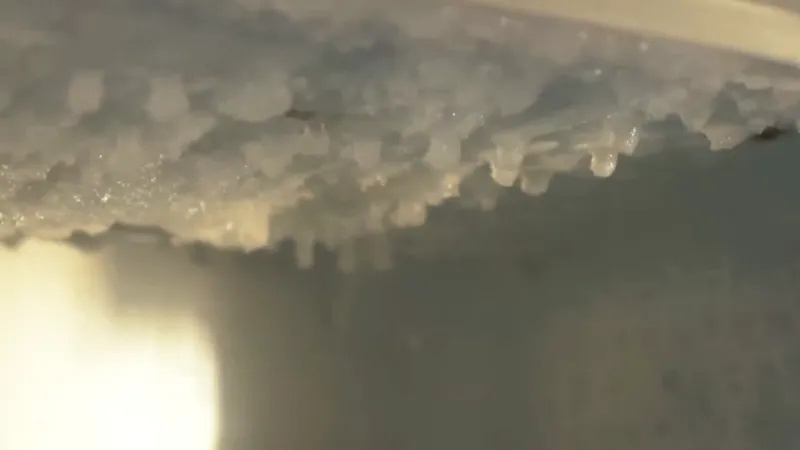
Causes of a Frozen Cooling Unit
The causes of a frozen cooling unit in a camper refrigerator can be due to several reasons. The temperature control settings in the refrigerator may not be set correctly, leading to the formation of ice within the unit.
Another reason could be low air flow within the refrigerator, which can also cause the cooling coils to freeze. A lack of maintenance, such as not cleaning the refrigerator regularly, can also lead to the accumulation of dirt and debris, causing the cooling unit to freeze.
Steps to Defrost the Cooling Unit
- Turn off the refrigerator and unplug it from the power source.
- Remove all the food items from the refrigerator and place them in a cooler.
- Leave the door of the refrigerator open and let it defrost naturally. This process may take several hours.
- Use a hair dryer or a fan to speed up the defrosting process. Be careful not to damage any components of the refrigerator while doing so.
- Once the interior of the refrigerator is completely defrosted, use a clean cloth to wipe down any remaining ice and moisture.
- Plug in the refrigerator and turn it back on. Set the temperature control to the correct setting.
- Place the food items back into the refrigerator and monitor it to ensure that it’s working properly.
It is important to defrost the cooling unit regularly to prevent it from freezing, which can cause the refrigerator to stop working. If the problem persists even after defrosting, it may be necessary to seek professional assistance to diagnose and fix the issue.
Problem 4: Pilot Light Won’t Stay on
The pilot light in a camper refrigerator is an important component of the heating system. It is responsible for providing a continuous flame that ignites the propane gas to heat the cooling unit.
Without a functioning pilot light, the refrigerator will not work effectively.
Tips for Fixing a Pilot Light That Won’t Stay on
If the pilot light in your camper refrigerator won’t stay on, there are several steps you can take to try and fix the issue. Here are a few tips to help you resolve the problem:
Check the Thermocouple
The thermocouple is a safety device that detects the presence of a flame and signals the propane valve to turn off if the flame goes out. If the thermocouple is faulty, it will prevent the pilot light from staying lit.
Clean the Pilot Light Orifice
Dirt, debris, or spider webs can clog the pilot light orifice and prevent the flame from staying lit. Clean the orifice with a small brush or compressed air.
Replace the Pilot Light Assembly
If the thermocouple and the orifice are functioning correctly, the pilot light assembly itself may be faulty. Replacing the assembly should fix the problem.
Call a Professional
If you are unable to resolve the issue with the pilot light, it is best to call a professional to repair the refrigerator.
a pilot light that won’t stay on can be a frustrating issue for camper refrigerator owners. However, with the right tools and some troubleshooting, this problem can be resolved relatively easily. If you are unable to resolve the issue on your own, it is always best to call a professional for assistance.
Problem 5: Burner is Failing
The burner in a camper refrigerator is responsible for heating the ammonia that circulates through the cooling unit. This heating causes the ammonia to evaporate and cool the refrigerant, which in turn cools the contents of the refrigerator. If the burner is failing, it may result in a warm or even hot interior temperature in the refrigerator, making it difficult or impossible to keep food and drinks cold.
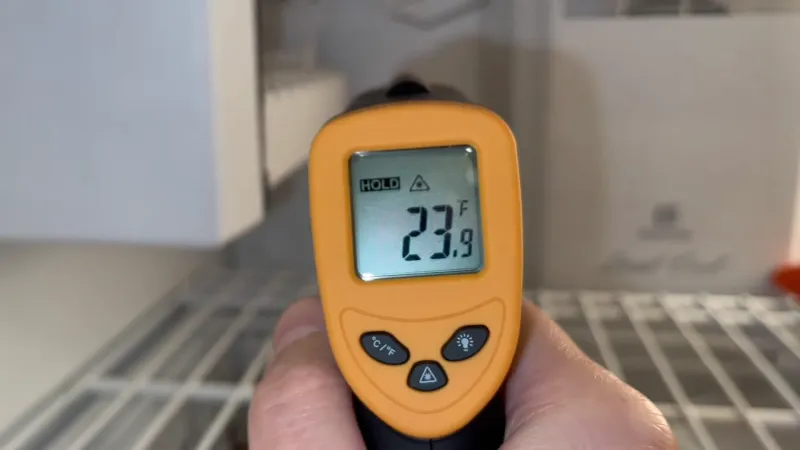
Steps to Fix a Failing Burner
There are a few different reasons that a burner may fail, so there are a few different steps to troubleshoot the issue.
Check the Propane Supply
If the burner isn’t lighting, the first step is to check the propane supply. Make sure the propane tank is full and properly connected to the refrigerator. Also, check the propane supply line for any kinks or blockages.
Replace the Spark Plug
If there is propane available, the next step is to replace the spark plug. Over time, the spark plug can wear out and no longer spark. Replacing the spark plug should resolve the issue if it’s the root cause.
Clean the Burner
If the burner is clogged, it can prevent the propane from igniting properly. Clean the burner and air inlets to ensure they are free of debris.
Replace the Burner
If the above steps don’t resolve the issue, it’s possible that the burner is damaged and needs to be replaced. Consult the manufacturer’s manual or a professional to replace the burner.
Fixing a failing burner in a camper refrigerator may require some troubleshooting, but the steps are usually straightforward and can be done with basic tools. If the problem persists, it’s always best to consult a professional for advice and repair services.
Problem 6: Ammonia Sediment Build-up
In a camper refrigerator, the cooling unit operates by using a combination of ammonia and water. Over time, this mixture can cause sediment to build up in the bottom of the unit. This sediment can hinder the proper circulation of the ammonia and negatively impact the efficiency of the refrigerator.
Techniques to Prevent and Remove Sediment Build-up
Regular Maintenance
Regular maintenance, such as cleaning the cooling unit, can help prevent the build-up of sediment. It is recommended to clean the unit at least once a year to prevent sediment from forming.
Ammonia Cleaning Solution
Using an ammonia cleaning solution can help remove any buildup of sediment in the cooling unit. Simply follow the instructions on the cleaning solution, and it should effectively remove the buildup.
Drain the Cooling Unit
Draining the cooling unit and flushing it with a solution of water and baking soda can help remove any sediment buildup. This should be done once a year to maintain the efficiency of the refrigerator.
Replace the Cooling Unit
If sediment build-up is particularly severe, it may be necessary to replace the entire cooling unit. This is a more extensive solution, but it will ensure that the refrigerator is running optimally.
preventing and removing sediment build-up in a camper refrigerator is essential for maintaining its efficiency and ensuring that it operates optimally. Regular maintenance, using cleaning solutions, draining the cooling unit, and replacing the unit are some of the techniques that can be used to prevent and remove sediment build-up.
Problem 7: Inconsistent Cooling
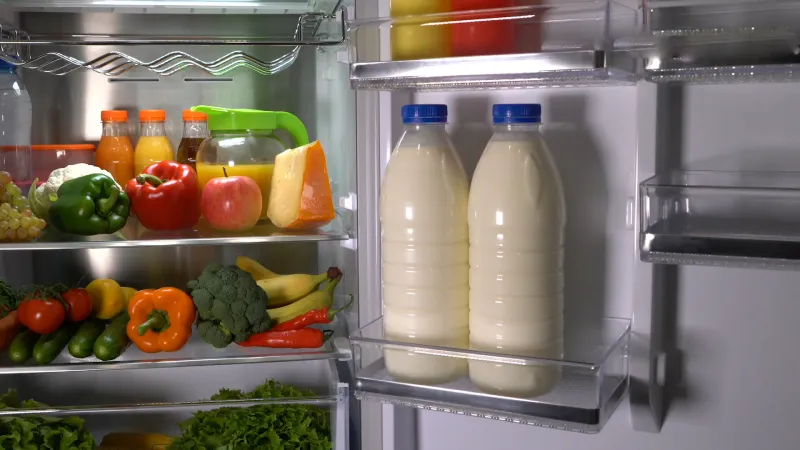
Inconsistent cooling in a camper refrigerator can be caused by several factors, including:
- Poor ventilation: A camper refrigerator requires adequate ventilation to function properly. If the ventilation is obstructed, the refrigerator will not work efficiently.
- Thermostat malfunction: The thermostat controls the temperature in the refrigerator. If it is faulty, the temperature will fluctuate and result in inconsistent cooling.
- Dirty coils: The coils on the back of the refrigerator can accumulate dirt and debris, reducing the efficiency of the cooling system.
- Blocked airflow: If the air vents inside the refrigerator are clogged with food or debris, the airflow will be restricted, and the cooling will be inconsistent.
Steps to Troubleshoot and Fix the Issue
- Check ventilation: Ensure that the refrigerator’s ventilation is not blocked. If it is, clean the vents to allow proper airflow.
- Test the thermostat: To determine if the thermostat is working properly, set it to a lower temperature, and see if the temperature inside the refrigerator drops. If it does not, the thermostat may need to be replaced.
- Clean the coils: Use a vacuum or brush to remove any dirt or debris from the coils on the back of the refrigerator.
- Unblock air vents: Check the air vents inside the refrigerator and remove any food or debris that may be blocking the airflow.
- Call a professional: If you are unable to diagnose and fix the problem, it is best to call a professional to avoid damaging the refrigerator further.
Inconsistent cooling in a camper refrigerator can be a frustrating problem, but it can be easily fixed with a little troubleshooting.
By checking the ventilation, testing the thermostat, cleaning the coils, and unblocking the air vents, you can ensure that your refrigerator is working efficiently and keeping your food and drinks at the desired temperature.
Problem 8: Thermometer Issues
The thermometer in your camper refrigerator is a crucial component that helps you to monitor the temperature inside the fridge. It helps you to adjust the temperature and ensure that your food and drinks are being stored at the correct temperature to keep them fresh.
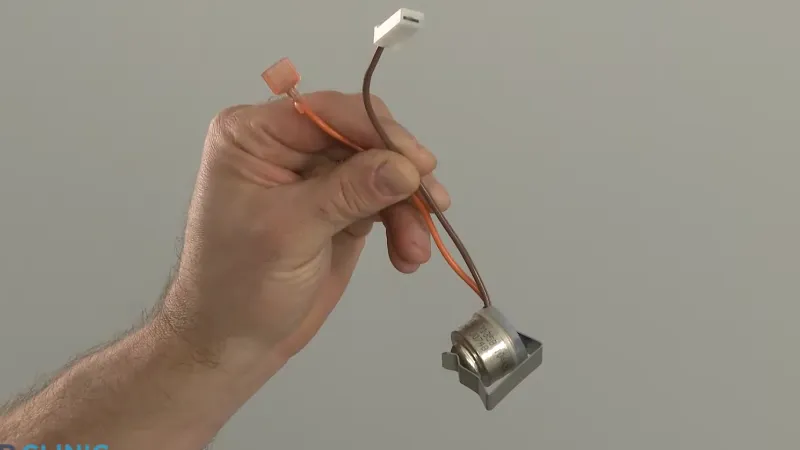
Techniques to Fix a Faulty Thermometer
If your thermometer is not working correctly, it can lead to problems such as overcooling, freezing, or spoilage of your food. Here are some steps to troubleshoot and fix the issue:
Check the Batteries
If your thermometer is battery-powered, replace the batteries and see if the issue is resolved.
Clean the Thermometer
Dirt and debris can accumulate on the thermometer, affecting its accuracy. Clean it with a soft cloth and see if the issue is fixed.
Check the Wiring
If the thermometer is not working correctly, it may be due to a wiring issue. Check the wiring and connections, and see if there are any loose or damaged wires.
Replace the Thermometer
If the issue persists, it may be necessary to replace the thermometer. This is a simple process, and replacement parts can be purchased from a camping or RV supply store.
the thermometer in your camper refrigerator is an important component that helps you to monitor the temperature inside the fridge. If the thermometer is not working correctly, you can troubleshoot the issue by checking the batteries, cleaning the thermometer, checking the wiring, or replacing the thermometer altogether.
Problem 9: Loud Noises
Camper Refrigerator Loud noises coming from a camper refrigerator can be caused by a variety of issues. Some of the most common causes include a malfunctioning fan, a loose part inside the refrigerator, or a problem with the compressor.
If you’re hearing loud noises coming from your camper refrigerator, it’s important to determine the source of the noise so you can properly address the issue.
Tips for Reducing or Eliminating the Noise
Here are some tips for reducing or eliminating loud noises coming from your camper refrigerator:
Check the Fan
If you hear a loud humming noise coming from your refrigerator, the fan may be the source of the problem. Try cleaning the fan blades and making sure they are properly aligned. If the fan is still making a loud noise, it may need to be replaced.
Secure Loose Parts
If you hear rattling or clanging noises coming from your refrigerator, there may be a loose part inside. Open the refrigerator and inspect it to see if there is anything that appears to be out of place. If you find a loose part, secure it in place to eliminate the noise.
Address Compressor Issues
If you hear a loud knocking or thumping noise coming from your refrigerator, the compressor may be the source of the problem. This issue can be caused by a variety of factors, including a refrigerant leak, a faulty compressor, or a problem with the cooling system. If you suspect a problem with the compressor, it’s best to consult a professional for repairs.
By following these tips, you can reduce or eliminate loud noises coming from your camper refrigerator and ensure it’s functioning properly.
Problem 10: Electrical Issues
The camper refrigerator runs on electricity and therefore, any electrical issues can cause the unit to malfunction. The electrical system controls the heating element, fan, and thermostat, which are all critical components in ensuring that the refrigerator is functioning correctly.
Tips for Troubleshooting and Fixing Electrical Issues
Here are a few tips for troubleshooting and fixing electrical issues with your camper refrigerator:
Check the Power Source
The first thing to check is the power source. Ensure that the power source is providing consistent and adequate power to the refrigerator. This can be checked with a voltage meter.
Check the Fuse
A blown fuse can prevent the refrigerator from functioning. Check the fuse and replace it if necessary.
Check the Wiring
Ensure that all the wiring is securely connected and there are no frayed wires or other signs of damage.
Check the Thermostat
The thermostat controls the cooling process. If the thermostat is not functioning correctly, it can cause the refrigerator to stop cooling.
Check the Fan
The fan helps circulate air and distribute the cool air evenly. If the fan is not functioning correctly, it can lead to inconsistent cooling.
If you’re unable to fix the electrical issues yourself, it’s recommended that you seek the help of a professional. Electrical issues can be dangerous, and it’s best to let a trained technician handle the problem to ensure your safety and the safety of your equipment.
Conclusion
Camper refrigerators can experience a range of problems, from won’t turning on to electrical issues. It’s important to address these problems promptly to ensure that the refrigerator continues to function effectively and to avoid potentially costly repairs.
By understanding the common issues and following the steps outlined in this guide, you can troubleshoot and fix many of the problems yourself. Additionally, taking proactive measures to prevent these problems, such as regularly cleaning the cooling unit and checking the thermometer, can help keep your camper refrigerator in good working order.
Remember, always use caution and consult a professional if you are unsure about how to fix a problem or if you need help with more complex repairs.

